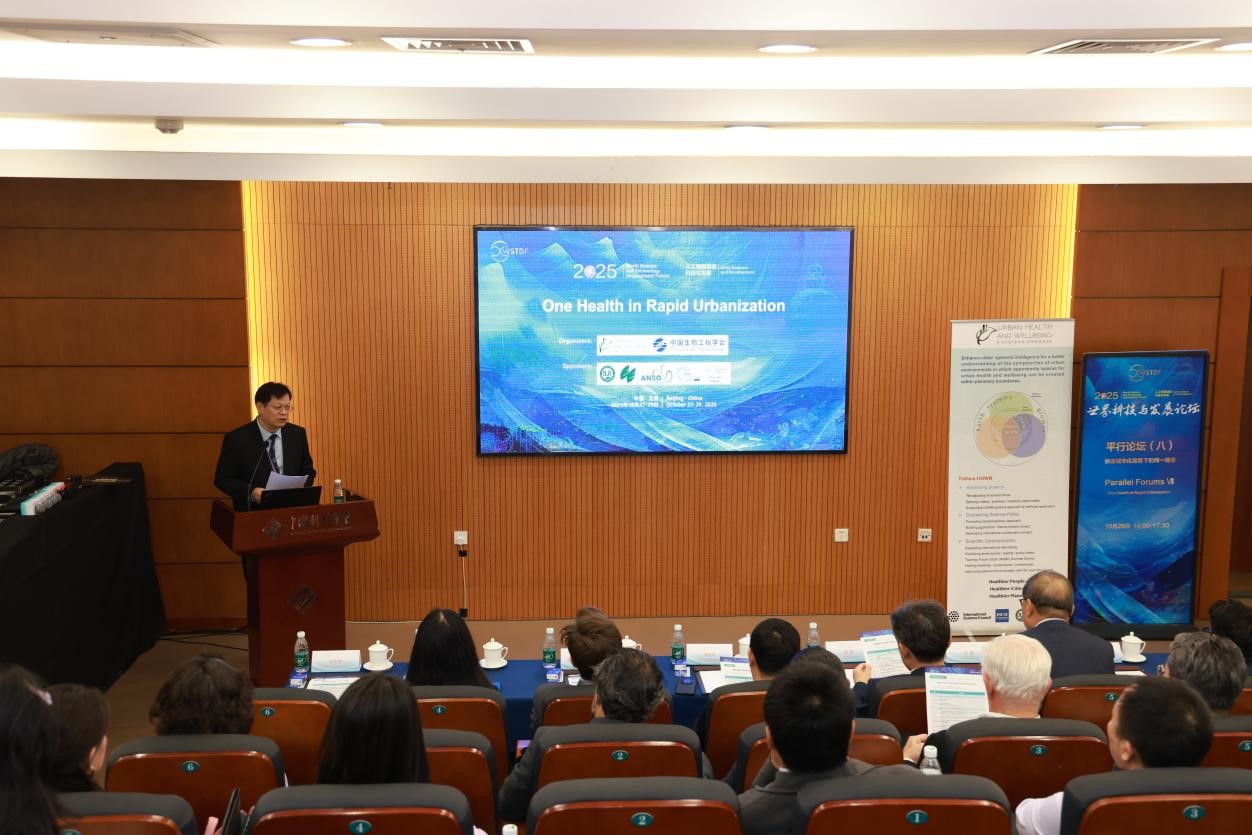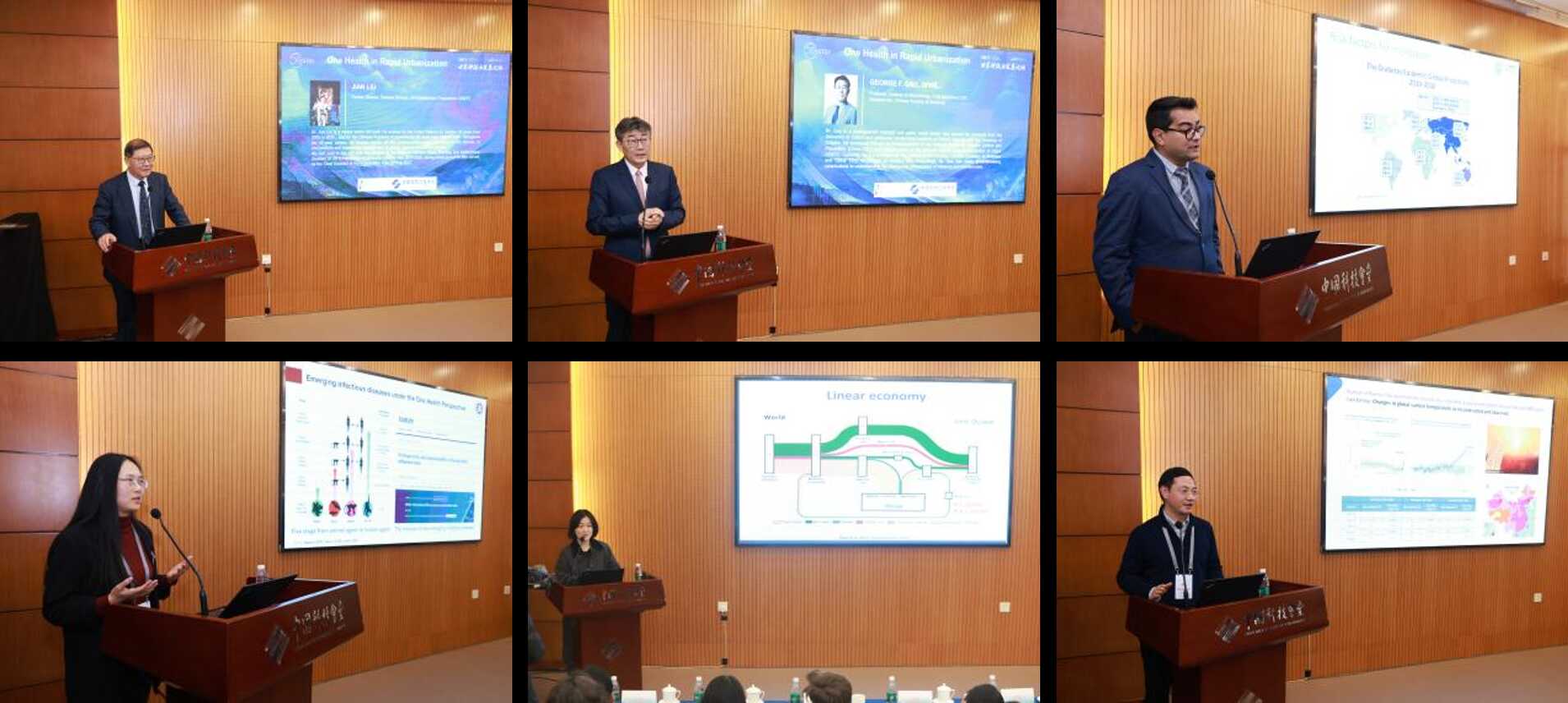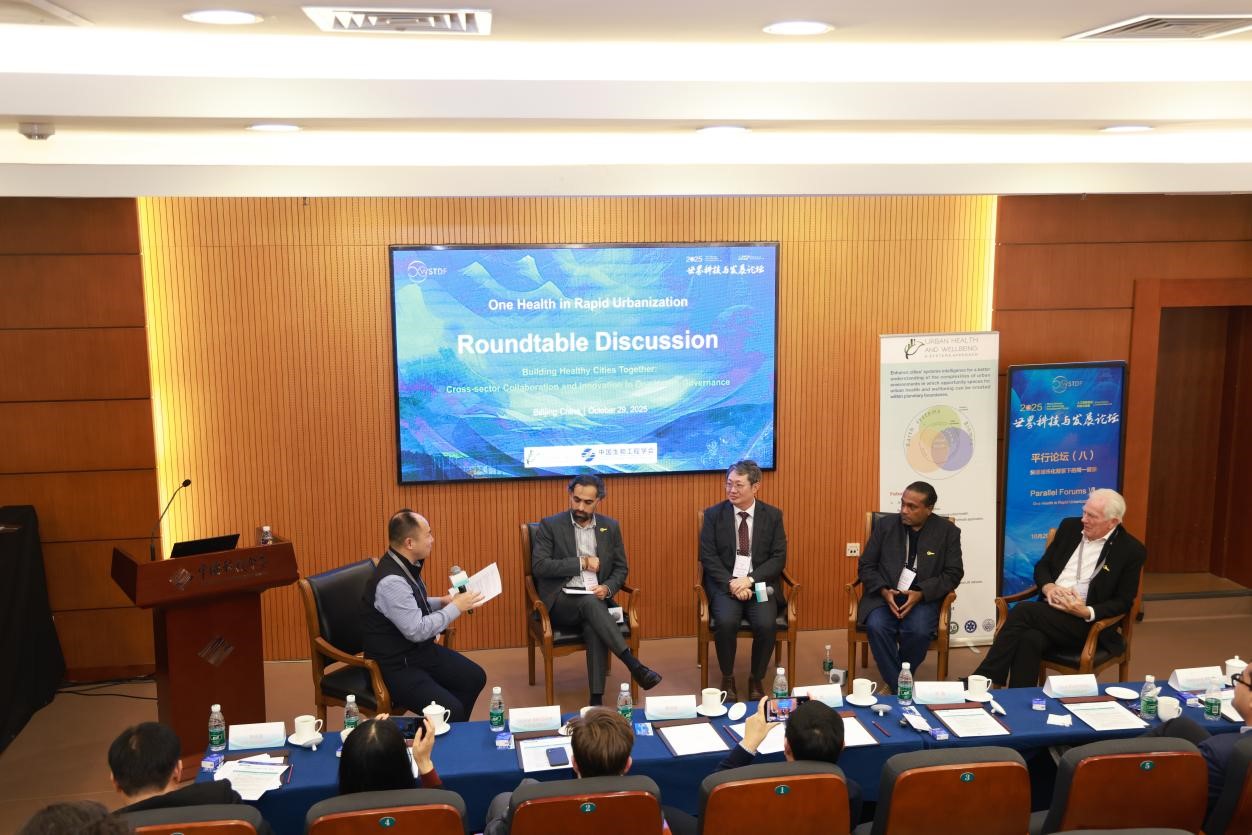On October 29th, the International Symposium on "One Health in Rapid Urbanization" was successfully held at the China Hall of Science and Technology in Beijing. Co-organized by the International Science Council - Urban Health and Wellbeing Programme, the Chinese Society of Biotechnology, and the Belt and Road Alliance of Urban Environmental Health, with joint support from the Research Center for Eco-Environmental Sciences of the Chinese Academy of Sciences (CAS),and the Institute of Urban Environment of CAS, as well as the One Sustainable Health Institutes (OSH), the event brought together leading scientists, public health experts, and policymakers from numerous countries. They gathered to discuss how the "One Health" approach can address the shared challenges facing human, animal, and environmental health amidst rapid urbanization.
The opening ceremony was chaired by Prof. Yong-Guan Zhu, Vice President of the International Science Council and Academician of CAS. In the opening remarks, Dr. Jian Liu, former Chief Scientist and former Director of the Science Division at the United Nations Environment Programme (UNEP), emphasized the severity of the "triple planetary crisis" - climate change, biodiversity loss, and pollution - and underscored the foundational role of science in policy formulation and global cooperation. Prof. George F. Gao, Academician of CAS and Professor at the Institute of Microbiology, CAS and China CDC, drawing lessons from public health challenges, called for enhanced global collaboration in the field of "One Health."
During the keynote speech session, several domestic and international experts shared cutting-edge research findings. Researcher Suraj Bhattarai from the London School of Hygiene & Tropical Medicine (LSHTM) used the case of melioidosis in Nepal to reveal the hidden disease burden at the human-animal-environment interface. Associate Professor Jooyoung Park from Seoul National University elaborated on building more sustainable and healthy cities through urban metabolism analysis and circular economy strategies. Professor Cunrui Huang from Tsinghua University provided an in-depth analysis of the severe impacts of climate change factors, such as extreme heat, on the health of vulnerable urban populations. Academician Akinyinka Omigbodun of the Nigerian Academy of Science discussed the health challenges of human-animal cohabitation in peri-urban transition zones, based on practical experience from Nigeria. Research Professor Jue Liu from Peking University, utilizing big data analysis, uncovered the complex relationship between urbanization and the burden of infectious diseases.
A subsequent roundtable discussion, themed "Building Healthy Cities Together: Cross-sector Collaboration and Innovation in One Health Governance", was held. Participants, including Professor Gjalt Huppes from Leiden University, Professor Janaka Jayawickrama from Shanghai University, Professor Joon Sik Kim from Xi'an Jiaotong-Liverpool University, and Researcher Abdalhadi Alijla from the Arab Reform Initiative, engaged in in-depth discussions on topics such as scientific governance, innovative models, social equity, and policy practice. This interdisciplinary dialogue clearly indicated that building healthy cities must break through the limitations of traditional governance frameworks. It highlighted the need for systemic innovation and integration to jointly construct a comprehensive, multi-level new "One Health" governance ecosystem, providing solid theoretical support and practical pathways for sustainable urban health development.
Faced with the complex challenges posed by rapid urbanization, the "One Health" concept has evolved from an academic consensus into an urgent call for action. Participants widely agreed that researchers, policymakers, industry, and the public must join forces. Through interdisciplinary collaboration and systemic innovation, they aim to collectively build a resilient, equitable, and sustainable urban future.



Department of International Cooperation
October 31,2025



